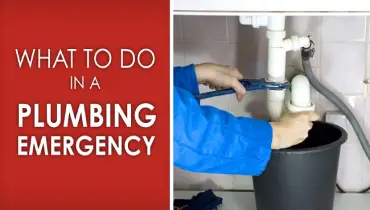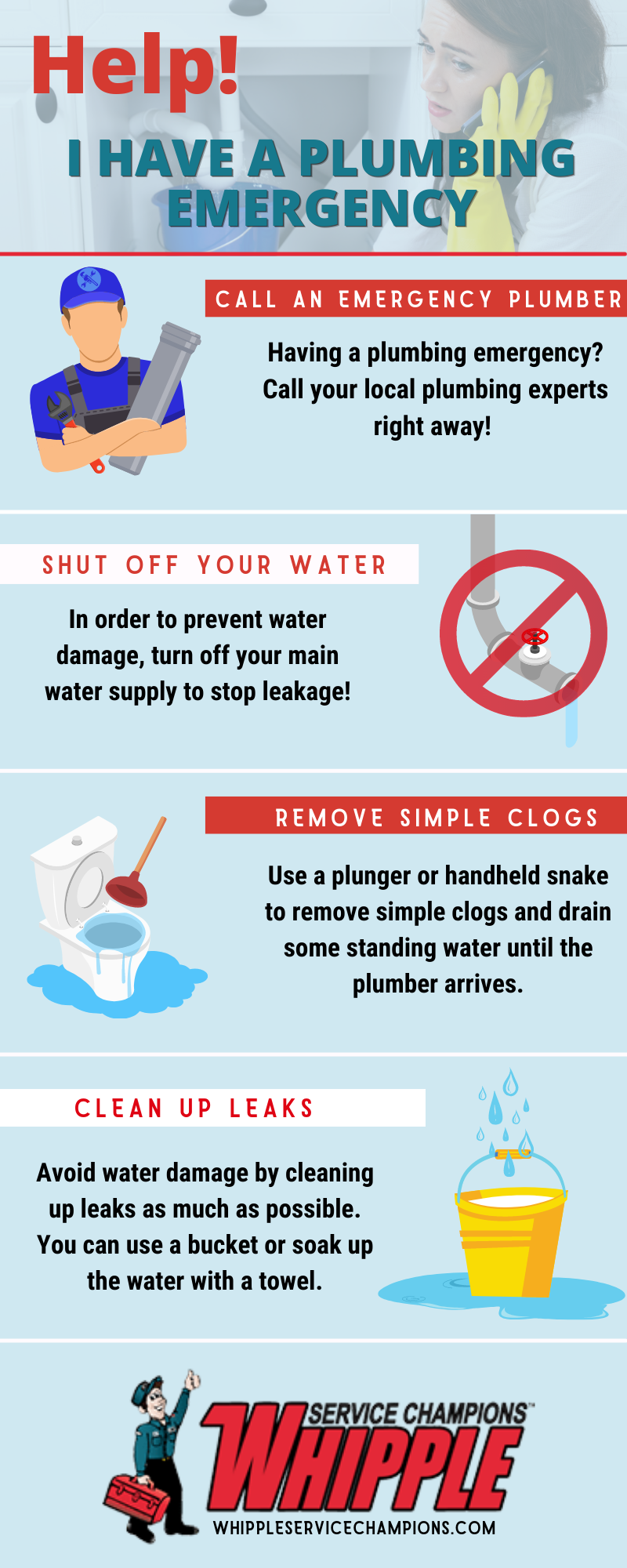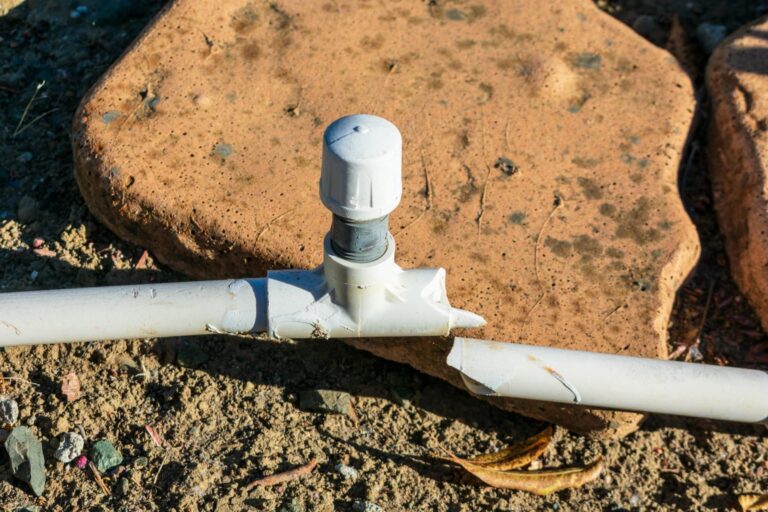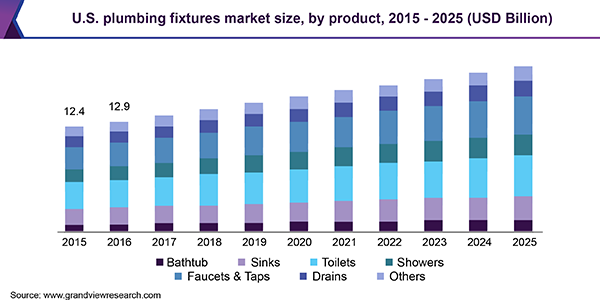What To Do In A Plumbing Emergency?
Plumbing emergencies can be stressful, but knowing what to do can help you stay calm and get the problem fixed as quickly as possible. Whether you’re dealing with a clogged sink, a broken pipe, or a flooding toilet, the first step is to turn off the water supply to the affected area. This will help prevent further damage from happening and can save you from costly repairs in the future. Once the water is shut off, you should call a professional plumber as soon as possible. A qualified plumber can diagnose the issue and get your plumbing system back to normal quickly and safely. In the meantime, you can take steps to prevent any further damage, such as using towels to soak up excess water or covering any exposed pipes with insulation. Being prepared for a plumbing emergency can help you stay safe and get the problem fixed quickly.
Identifying a Plumbing Emergency
If you’re dealing with a plumbing emergency, it’s important to know how to identify it, what steps to take, and who to call for help. A plumbing emergency is any situation that poses a risk to your home or family due to a plumbing problem. This could include a burst pipe, a clogged sewer line, or a flooded basement. Identifying the problem quickly can help prevent further damage and help you get the help you need to fix the issue.
When it comes to identifying a plumbing emergency, it’s important to look out for warning signs. This includes water pooling in your basement or around your home, strange odors coming from your drains, a dripping faucet that won’t stop, or water pressure that suddenly decreases. If you notice any of these signs, it’s important to act quickly and contact a plumbing professional as soon as possible.
If you’re not sure if you’re dealing with a plumbing emergency, it’s best to err on the side of caution and contact a plumbing service. They can assess the situation and determine the best course of action to take. It’s also a good idea to have the contact information of a plumbing service handy in case of an emergency. That way, you can act quickly and get the help you need.
Shutting Off the Main Water Supply
Having a plumbing emergency can be a stressful and overwhelming experience. In order to ensure that the situation is handled properly and safely, it is important to know what to do in a plumbing emergency. One of the first steps you should take is to shut off the main water supply. Shutting off the main water supply can help prevent further damage to your home and can help minimize the financial impact of a plumbing emergency.
Turning off the main water supply is a relatively simple process. First, you should find the main water shut-off valve. This valve is usually located near the street and is usually labeled. If you are unable to locate the main water shut-off valve, you can contact your local water department for assistance. Once you have located the valve, simply turn it clockwise until it is completely closed. This will stop the flow of water throughout the entire house, allowing you to address the plumbing issue in a safe way.
Having the knowledge to shut off the main water supply in an emergency can help prevent further damage and make a stressful situation much more manageable. It is always best to be prepared and know what to do in a plumbing emergency.
Locating the Source of the Problem
When a plumbing emergency strikes, the first step is to determine the source of the problem. This can be difficult to do if you don’t have the necessary experience. Without knowing where the issue is coming from, it can be hard to tell what the best solution is. In some cases, it may be best to call a professional plumber to inspect and assess the situation.
However, if you have some basic plumbing knowledge, you may be able to identify the source of the issue on your own. Start by checking the main water supply line to your home. If this is the source of the problem, it’s likely that you’ll need to shut off the water supply to your home. Next, check the water meter to see if it indicates a leak. If the meter is spinning more quickly than normal, it can be an indication of a water leak.
Finally, check the fixtures in your home, such as sinks, toilets, and showers. Make sure that none of these are leaking or appear to be malfunctioning. If any of these are leaking, you’ll likely need to replace the fixture. It’s important to take the necessary steps to identify the source of the plumbing emergency, as this will help you know what the appropriate course of action is.

Taking Immediate Action to Stop the Flow of Water
No one wants to deal with a plumbing emergency, but when it does happen, it’s important to act fast. Taking immediate action to stop the flow of water is the first step in mitigating the damage caused by a plumbing emergency. Knowing the basics of how to shut off water valves, locate the main water shut off valve, and even cut off water supply to individual plumbing fixtures can be invaluable in a plumbing emergency.
Knowing how to shut off the water supply quickly can help minimize damage to your home and belongings, as well as help prevent further plumbing problems. Shutting off the main water supply should be the first step in handling a plumbing emergency. This can usually be done by turning the valve clockwise until it stops. If you don’t know where the main water shut off valve is located in your home, it may be necessary to contact a professional plumber.
If the emergency is more localized, such as a broken toilet or a backed-up sink, there should be a shut-off valve behind or near the fixture. In most cases, it’s a simple matter of turning the valve clockwise until it stops. If the valve is stuck, it may be necessary to use a wrench or pliers to turn it off.
Taking the right steps in a plumbing emergency can help minimize the damage and cost of repairs. Knowing how to shut off the water can also help prevent potential health hazards from contaminated water. Taking immediate action to stop the flow of water is the first step in any plumbing emergency.
Professional Assistance for More Severe Issues
Plumbing emergencies can be a nightmare, but with the right knowledge, you can identify the issue and take the necessary steps to mitigate the damage. In more severe cases, however, it’s best to seek professional assistance. A qualified plumber can assess the issue, identify the root cause, and provide a reliable solution.
Professional plumbing services come with the advantages of experienced technicians, quality parts, and the assurance of a job done right. They can also detect underlying issues that the average homeowner may not recognize. This can save time and money in the long run, as these issues can become more severe if left unaddressed.
Plumbers also have access to the right tools and equipment for more complex plumbing emergencies. They can also provide a variety of services such as pipe repair and replacement, water heater maintenance, and drain cleaning. This can be invaluable in an emergency situation where time is of the essence.
Of course, it’s always a good idea to have a trusted plumbing service on hand for any emergency situation. You can also prepare yourself by following proper plumbing maintenance routines and learning the basics of plumbing care. Taking these steps can go a long way in avoiding plumbing disasters.
Preventative Measures to Avoid Future Emergencies
When it comes to plumbing emergencies, the best policy is always prevention. Taking a few simple steps can help prevent plumbing emergencies from occurring in the first place. Regular inspections and maintenance can help identify and address small problems before they become larger, more expensive emergencies. Leaks and clogs should be identified and fixed as soon as possible, as water damage can quickly become an expensive problem. Additionally, installing a water softener can help reduce clogging and corrosion, and regular pipe replacement can help prevent bursting pipes.
It is also important to ensure that your plumbing system is up-to-date and equipped with the latest safety features. Consider installing water pressure regulators to reduce the risk of bursting pipes, and be sure to use non-toxic, biodegradable cleaners to keep your pipes clean and free of blockage. Finally, emergency shut-off valves should be installed near vulnerable areas of the plumbing system, such as the water heater or washing machine, to quickly shut off the water in the event of an emergency.
Taking these preventative measures can help reduce the likelihood of plumbing emergencies and keep your home safe and free of costly water damage.
FAQs About the What To Do In A Plumbing Emergency?
Q1: What should I do if I experience a plumbing emergency?
A1: In the case of a plumbing emergency, it is essential that you turn off the main water supply to your home and contact a professional plumber as soon as possible.
Q2: What constitutes a plumbing emergency?
A2: A plumbing emergency is any situation in which there is a risk of water damage to the home, such as a burst pipe, overflowing toilet, or severe clog.
Q3: How can I prevent a plumbing emergency?
A3: Regularly inspect your plumbing system for signs of wear and tear and have it serviced by a professional plumber. Additionally, be sure to only flush toilet-safe items and avoid pouring grease or other debris down the drain.
Conclusion
In conclusion, plumbing emergencies can be stressful and overwhelming. However, you can take proactive steps to address the emergency and prevent any further damages. You should always shut off the water as soon as possible, assess the damages and identify the cause, and contact a professional plumbing service immediately. With the right help and preparation, you can handle any plumbing emergency, no matter how serious.







